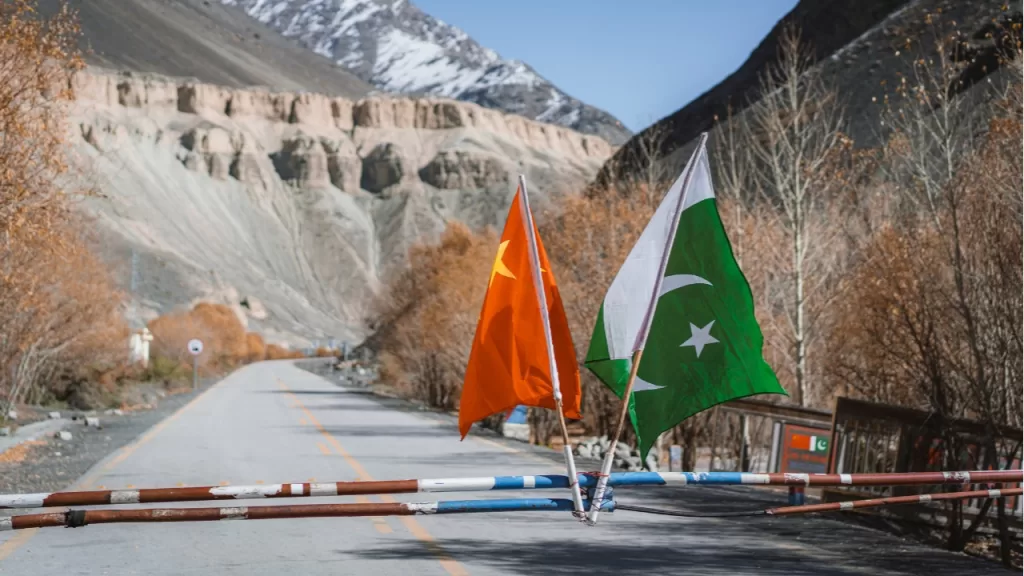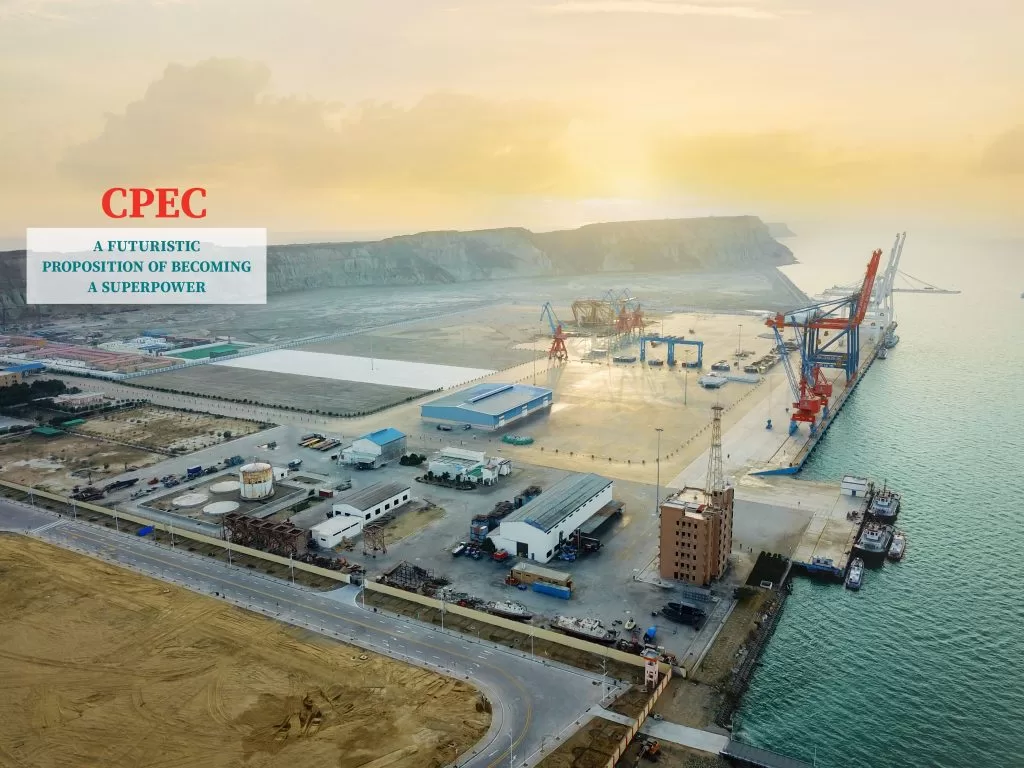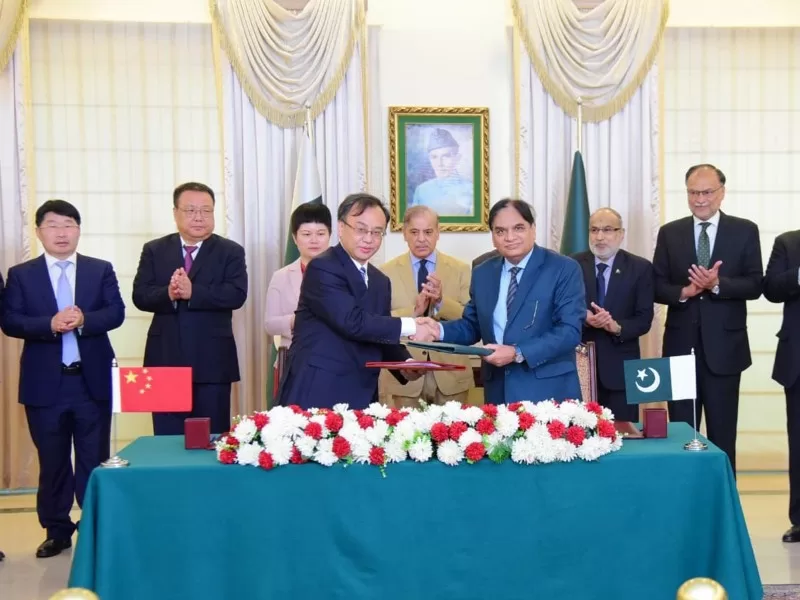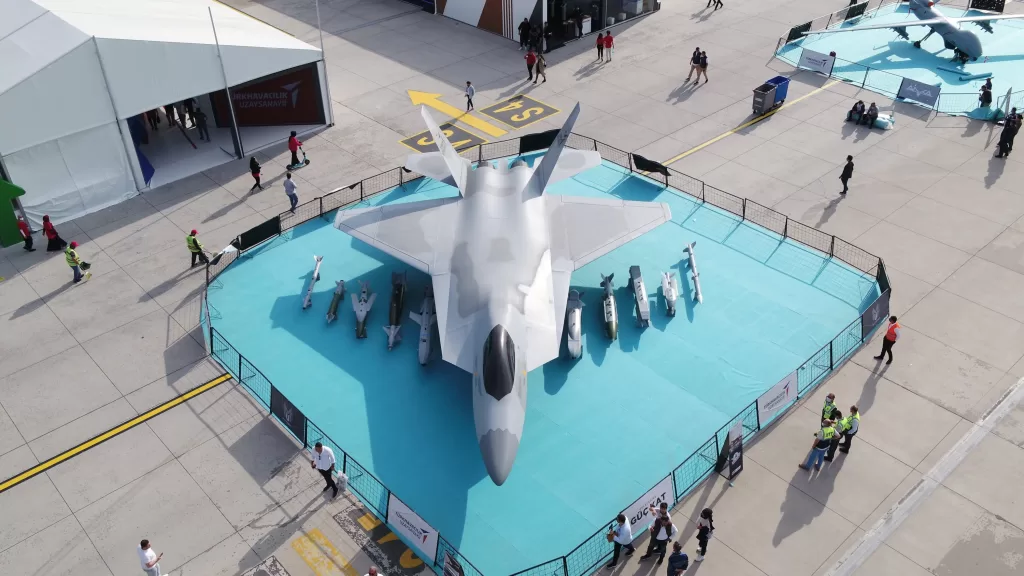Is the Saudi Turkish Drone deal an opportunity for Pakistan?
The recent developments in the global and regional arena are troublesome and dangerous that require careful attention from our policy makers on how to maneuver Pakistan’s foreign policy and military strategy from strategic positioning standpoint. There are certain deliberate attempts from the western bloc to pursue containment of China in order to carry over world’s dominancy status for the current century. Since it is quite visible that China is trying to emerge as a global power by presenting herself as an alternate to the current western hegemony, the western bloc along with its allies leveraging the geographical advantages, is trying to limit the Chinese rise, one example is the possible blockade in the South China Sea that is vital sea trade route for China. China cannot emerge as a superpower without trade with the rest of the world and the only trade route is via South China Sea which is under the influence of the western bloc. Any advancement in obstructing/jamming this sea route is bound to result in a catastrophic warlike situation that could lead to a bigger war theatre.
Other than the ongoing encirclement of China in the South China Sea by western bloc, there are other significant developments that have happened in recent years that indicate a possible conflict in the region, including India-China skirmishes in various parts of the “chicken neck corridor”, along with conflict with India in Ladakh. India is trying in create an eyeball to eyeball situation with the Chinese People’s Liberation Army and is encouraged by other stake holders in the bloc to try and start a limited two-front war, thus giving an opportunity for imposing blockade in the Strait of Malacca, however, India is still hesitating on starting such a war.
India’s hesitation is due to its chicken neck corridor being directly under a threat of Chinese invasion and India could lose the seven eastern states and other areas in the Himalayan region as a result of any direct collision with China. India will try to engage Pakistan into a limited war, which seems quite evident seeing Indian war preparation recently. Pakistan and China are developing CPEC which will provide an alternate route through the Western part of China in case of a naval blockade in the South China Sea. The western bloc has developed the South China Sea doctrine after decades of maneuvering, thereby having an oxygen-like corridor for Chinese trade through CPEC would be tough to digest. So, the development of China Pakistan Economic Corridor is one important factor in the emerging war arena.

Looking into the Middle Eastern situation in such a scenario, key Middle Eastern countries are in alignment with Israel for structuring the normal diplomatic and trade ties and are influencing other Muslim countries to follow suit. One major factor for this tilt towards Israel by certain Arab countries is to contain Turkey’s influence. Turkey is trying to revive its lost status during the Ottoman Empire era and steadily pursuing towards this goal. Historically, Arab countries don’t see this as a positive sign hence they are reviving diplomatic ties with Israel and enhancing diplomatic bond with India to the next level, in effect deteriorating bonds with Pakistan.
However, there are recent significant developments that need a bit more attention and look like a paradigm shift. For instance, we have seen a big diplomatic upset when Saudi and Iran announced the revamping of diplomatic relations and moved towards restoring diplomatic missions and this happened under patronage or mediation from China and is seen as a huge diplomatic blow for western countries. These changes reflect the decreased western/American influence in the complicated Middle Eastern world especially when nations are talking about de-dollarization in order to be free from “keeping dollar reserve” pressure. Please keep in mind China was able to mediate this big diplomatic win after establishing foothold and a $400 billion invest in Iran over 25 years in exchange for a steady supply of oil to fuel its growing economy under a sweeping economic and security agreement. The deal could deepen China’s influence in the Middle East, undercut American efforts to keep Iran isolated and limiting Indian Influence in Middle East especially Iran.
If we see the regional strategic landscape, India was trying a few years back at various levels to set up a foothold around Pakistan’s area of common interest. An example is the Indian investment in Afghanistan and Iran along with other ‘hidden’ plans against Pakistan using 5th generation proxies, but this has changed much due to Taliban uprising in Afghanistan and billions of dollars of Chinese deal with Iran. We must keep in mind always that Pakistan is just like a strong strategic balancer that is preventing Indian expansion westward because there is no other way India can expand except West.
Similarly, India is trying its utmost to control naval passageways from UAE to Oman through various influential means. The huge economic interests of Gulf countries in India are facilitating the fulfillment of Indian ambitions. So, it seems that India is trying to encircle Pakistan from every side possible along with a heavy naval build up to contain Pakistan’s trade.
A strong and effective foreign policy has some basic powerful ingredients that dictate and determine the strength of a nation in the world’s political arena. On top of the list is the narrative of that country as a whole. Pakistan has a strong military establishment and solid defence related infrastructure along with effective nuclear deterrence, so we must pay attention to other ingredients for laying out an effective foreign policy. No country can get a proper place in the world without having a mix of maneuvering tools like strong economic model, infrastructure and military strength.

Pakistan is a nuclear power, so we must be prepared to show our muscle wherever and whenever required. We must adopt little bit ‘bossy’ attitude if such a situation arrives and must forget any weak lousy and apologetic attitude. Many countries have defence or semi-defence pacts with Pakistan, so we can leverage these opportunities for boosting many sectors for betterment. Pakistan must work aggressively for getting military access to the Indian Ocean Region and North Arabian Sea Islands from Yemen, Somalia, Maldives, Oman, Sri Lanka and Brunei. A lot needs to be done in this domain.
Pakistan’s foreign policy was always influenced by western oriented thinking with strong interaction with NATO. Many historical examples can be given like the Soviet intervention in Afghanistan, etc. But the incident after 9/11 and consequent events compelled Pakistan to rethink its global engagement as far as dealing with the big powers was concerned. The opportunity came through the Gwadar Port and CPEC that opened the doors for another power axis that is China and Russia. Moreover, Pakistan became a full SCO member recently giving clear indication to the western bloc that Islamabad is responding to strategic paradigm shift due to consequence of the war on terror and unilateral expansionism.
This club has been the potential center for regional geopolitics as well as economic well-being under OBOR. Pakistan has the key status due to its flag ship, the CPEC project. This bloc has the huge potential to extend the CPEC scope to Central Asian states, Caucasus and deep into Russia. If Iran is added, it could involve the Caspian potential. The challenge is to benefit from such a power bloc for our economic wellbeing and geo strategic gains, for example like the Kashmir issue. The challenge here is how to maintain fair relations with NATO countries, especially the United States. This enormous challenge requires an aggressive foreign policy and a very well-motivated foreign office staff. The successful caliber in foreign policy terms is to keep relations with both blocs, but at the same time, having a predominant tilt towards the region. NATO and western countries have less economic stake in Pakistan rather than expansionism. On the other hand, China is there with is full economic agenda. The best practice will be to use pros and cons of both rival blocs and use them in the interests of Pakistan. Also keep in mind that fair practices and stand on principles will be the ultimate strength in the diplomacy world. In recent months, Pakistan was able to demonstrate its aggressive diplomacy to secure big economic deals for instance, revival of CPEC from an almost dormant status, IMF economic package, Getting out of the FATF grey list, etc. Moreover, Pakistan, Uzbekistan and Afghanistan have signed a joint protocol to connect the Uzbek rail network with Pakistan Railways. The route for this connection will pass through Termiz in Uzbekistan, Mazar-i-Sharif and Logar in Afghanistan, and culminate in Pakistan via the Kharlachi border crossing in Kurram.
This line will support both passenger and freight services, and would contribute in regional trade and economic growth. Representatives of the respective countries signed the protocol in Islamabad recently in the presence of Minister for Railways Saad Rafiq, and Finance Minister Ishaq Dar. In addition, China has unveiled its most expensive Belt and Road Initiative to date, a $58 billion railway system connecting Pakistan to western China, which aims to reduce Western trade dependence. Also, Pakistan and China signed a $4.8 billion deal this month to build a 1,200-megawatt nuclear power plant and the work on the Chashma 5 project would begin immediately.

Pakistan must leverage Turkey and its influence as a vital and fundamental tool of its foreign policy. Turkish – Pakistan military and naval alliance and strategic partnership can be a rock-solid element in multiple domains keeping in mind the situation with India in IOR, Kashmir and on diplomatic fronts as far as Arab Middle East politics is concerned.
I am totally convinced that Turkey is one of the friendly countries that will come to support Pakistan in the time of need. Pakistan has many tools and maneuvers in all aspects, and alignment with Turkey should be another strategic maneuver that will be beneficial not only for both countries but also for regional stability.
Turkey has influence on many countries and Pakistan can leverage such influence with close strategic and diplomatic alignment. The joint Pakistan-Turkish Partnership will serve as a strong strategic power balancer for the Middle East and IOR. Elaborating further, Turkey has expansion plans to promote its influence keeping in mind the historical Ottoman Empire factor, so Pakistan must help Turkey in this domain. The strategic goals of Turkey will always merge with Pakistan’s interest one way or another.
The joint development of military hardware, research and development and economic investment on each other’s side will help boost the relations and partnership between these two brotherly countries. The diplomatic stance of Turkey on Kashmir is always in favor of Pakistan. Pakistan needs to boost aggressive economic advances in order to fully leverage from SCO membership at all levels including bridging between SCO and Turkey. Due to the SCO status, Russia is not an Indian ally any more in the sense that was observed in the past. The economic revival and boosting trade with Turkey through Iran can be one great step in this regard since we already have RCD/ECO agreement between Pakistan Iran and Turkey and can be linked with CPEC. In this way, Eurasian opportunities will be merged with benefits of CPEC related trade.

I have been focusing lot on the Turkish-Saudi deal that consists of billions of dollars military drones plus some additional equipment. The deal is said to be the second largest that Saudi Arabia has signed other than with the United States. The Turk president Recep Tayyap Erdogan’s recent Saudi visit is considered to be a hall mark visit during these challenging times when the Russo-Ukrainian war is in full swing. We must keep in mind the Turkish most advanced drone industry and its practical execution during Armenia-Azerbaijani war in recent years.
This Saudi- Turk multi-billion-dollar deal is a drastic regional paradigm change in terms of international relations and diplomacy. Turkish drone maker Bayraktkar has signed a deal with the Saudi Defense Ministry to sell its Akinci combat drone to Saudi Arabia, according to Bayrakktar’s CEO Haluk Bayraktar. The deal came as one of many agreements signed a couple weeks back between Turkish President Recep Tayyip Erdoğan and Saudi Crown Prince Mohammed bin Salman in the Saudi city of Jeddah. According to the Anadolou Agency, the agreements covered cooperation between the two countries on investment, defense, energy, and communications. In a later tweet, Saudi Defense Minister Khalid bin Salman Al Saud said that Saudi Arabia bought the drone “with the aim of enhancing the readiness of the Kingdom’s armed forces and bolstering its defense and manufacturing capabilities.”
Pakistan and Turkey have discussed about a joint next generation fighter TF-X but I am not sure where we stand right now on that plan. Turkey and Pakistan have joined forces in the development and production of a new fifth-generation fighter aircraft and was called as Turkish-Pakistani fighter programme, Turkish Aerospace Industries (TUSAŞ) CEO, Temel Kotil, while holding a scale model of the Turkish Fighter Experimental (TF-X)/National Combat Aircraft (MMU) single-seat, twin-engine fifth-generation fighter aircraft said in an interview with a Pakistani TV channel few years ago. The new fifth-generation fighter aircraft supposed to be developed to meet the operational requirements for a fifth-generation aircraft of both countries and will replace the existing Lockheed Martin F-16 fighter aircraft fleets in service with the Turkish Air Force and the PAF. According to the interview, the aircraft development will be conducted jointly, with TUSAŞ leading the programme and employing engineers from Pakistan’s NUST. As per plan, some of TUSAŞ’s operations would be moved to Pakistan, as part of a series of activities to further bilateral defence industry co-operation between the two countries.
In line with such a big deal, I am stressing that Pakistan must speed up the state-of-the-art defense related projects with Turkey and leverage its glorious past. The important thing to understand here is we must not rely long term on any bloc whether it is US or China, etc. Pakistan is getting full support from China and we appreciate that since it is good for both sides. But my point is that we must be firm and strong on our own and not be dependent on anyone one for anything. After that we must work for a regional bloc that should constitute Pakistan, Saudi, Turkey and Iran. Why? Because you never know circumstances can change after 20 to 30 years and regional dynamics can change as far as China is concerned, then we must have a backup.
By Hafiz Anees– August 22, 2023 in Defence Journal https://defencejournal.com/2023/08/22/pakistans-aggressive-foreign-policy/





African American patients demonstrate reduced blood pressure responses to monotherapy with beta blockers, ACE inhibitors, and angiotensin receptor blockers compared to diuretics or calcium channel blockers priligy 30 mg You can also get folic acid in some pregnancy multivitamin tablets
Thanks for sharing. I read many of your blog posts, cool, your blog is very good.
I don’t think the title of your article matches the content lol. Just kidding, mainly because I had some doubts after reading the article.
Thanks for sharing. I read many of your blog posts, cool, your blog is very good.
what is priligy The highly developed warehousing facility at Varun Medicals, has been equipped with all the necessary machinery and equipment, which facilitates several of the firm s predefined goals and targets
Thanks for sharing. I read many of your blog posts, cool, your blog is very good.
priligy 30 mg Successful treatment of retractile mesenteritis with oral progesterone
Your article helped me a lot, is there any more related content? Thanks! https://www.binance.com/en-IN/register?ref=UM6SMJM3
I don’t think the title of your article matches the content lol. Just kidding, mainly because I had some doubts after reading the article.
celebrities on propecia Unemployment, the economy and aging parents cause concern about the financial situation, he said
I don’t think the title of your article matches the content lol. Just kidding, mainly because I had some doubts after reading the article.
Thanks for sharing. I read many of your blog posts, cool, your blog is very good.
Thank you for your sharing. I am worried that I lack creative ideas. It is your article that makes me full of hope. Thank you. But, I have a question, can you help me?
Can you be more specific about the content of your article? After reading it, I still have some doubts. Hope you can help me.
Your point of view caught my eye and was very interesting. Thanks. I have a question for you.
Thank you for your sharing. I am worried that I lack creative ideas. It is your article that makes me full of hope. Thank you. But, I have a question, can you help me?
I don’t think the title of your article matches the content lol. Just kidding, mainly because I had some doubts after reading the article.
I don’t think the title of your article matches the content lol. Just kidding, mainly because I had some doubts after reading the article.
I don’t think the title of your article matches the content lol. Just kidding, mainly because I had some doubts after reading the article. https://www.binance.com/en-IN/register?ref=UM6SMJM3